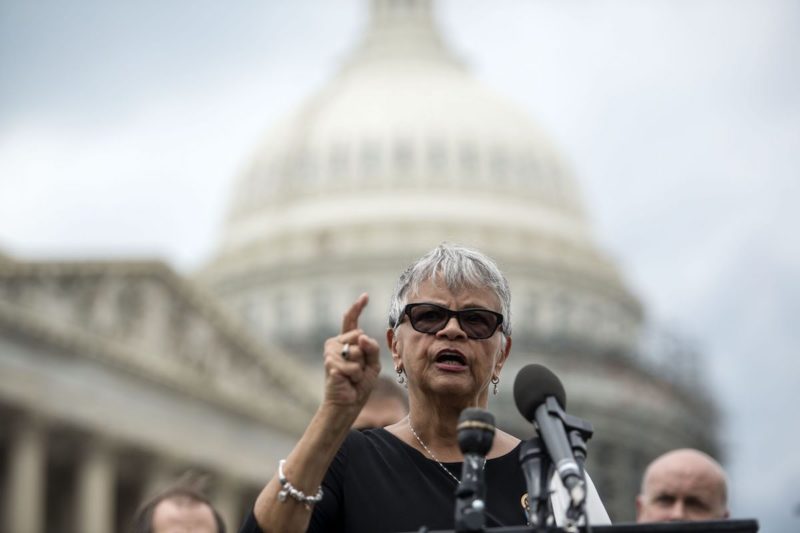Congresswoman Pushes Intersectionality at Democratic National Convention
Rep. Bonnie Watson Coleman (D-NJ) charges that reproductive health-care restrictions have a disproportionate impact on the poor, the urban, the rural, and people of color.

Read more of our coverage of the Democratic National Convention here.
The members of Congress who flocked to the Democratic National Convention in Philadelphia this week included a vocal advocate for the intersection of racial and reproductive justice: Rep. Bonnie Watson Coleman (D-NJ).
Watson Coleman’s longstanding work in these areas “represented the intersection of who I am,” she said during a discussion in Philadelphia sponsored by the Center for Reproductive Rights and Cosmopolitan. Reproductive health-care restrictions, she stressed, have a disproportionate effect on the poor, the urban, the rural, and people of color.
“These decisions impact these communities even more so [than others],” she told Rewire in an interview. “We don’t have the alternatives that middle-class, suburban, white women have. And we’d rather they have them.”
Watson Coleman has brought that context to her work in Congress. In less than two years on Capitol Hill, she co-founded the Congressional Caucus on Black Women and Girls and serves on the so-called Select Investigative Panel on Infant Lives, a GOP-led, $1.2 million investigation that she and her fellow Democrats have called an anti-choice “witch hunt.”
Coleman said she’s largely found support and encouragement among her fellow lawmakers during her first term as a woman of color and outspoken advocate for reproductive rights.
“What I’ve gotten from my Republican colleagues who are so adamantly against a woman’s right to choose—I don’t think it has anything to do with my being a woman or an African American, it has to do with the issue,” she said.
House Republicans have increasingly pushed anti-choice policies in advance of the ongoing August recess and November’s presidential election. The House this month passed the Conscience Protection Act, which would give health-care providers a private right of action to seek civil damages in court, should they face supposed coercion to provide abortion care or discrimination stemming from their refusal to assist in such care.
Speaker Paul Ryan (R-WI) lauded passage of the bill and the House’s thus-far unsuccessful effort to prove that Planned Parenthood profited from fetal tissue donations—allegations based on widely discredited videos published by the Center for Medical Progress, an anti-choice front group that has worked closely with GOP legislators to attack funding for Planned Parenthood.
On the other side of the aisle, Watson Coleman joined 118 other House Democrats to co-sponsor the Equal Access to Abortion Coverage in Health Insurance Act (HR 2972). Known as the EACH Woman Act, the legislation would overturn the Hyde Amendment and ensure that every woman has access to insurance coverage of abortion care.
The Hyde Amendment’s restriction of federal funding for abortion care represents a particularly significant barrier for people with low incomes and people of color.
The Democratic Party platform, for the first time, calls for repealing the Hyde Amendment, though the process for undoing a yearly federal appropriations rider remains unclear.
For Watson Coleman, the path forward on getting rid of the Hyde Amendment is clear on at least one point: The next president can’t go it alone.
“The president will have to have a willing Congress,” she said. She called on the electorate to “recognize that this is not a personality contest” and “remove some of those people who have just been obstructionists without having the proper evidence.”
In the meantime, what does a “willing Congress” look like for legislation with anti-choice roadblocks? A majority voting bloc helps, Watson Coleman said. But that’s not everything.
“There are lots of bills that Republicans will vote for if their leadership would simply bring them up,” she said.
